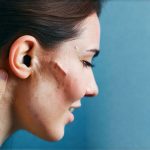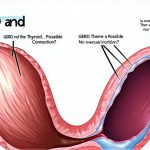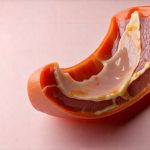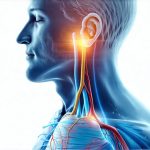Gastroesophageal Reflux Disease (GERD), commonly known as acid reflux, is a prevalent condition affecting millions worldwide. It’s characterized by the backflow of stomach acid into the esophagus, leading to symptoms like heartburn, regurgitation, and difficulty swallowing. While most associate GERD with digestive discomfort, recent investigations are exploring potential links between chronic health conditions and seemingly unrelated issues like hair loss. The connection isn’t always straightforward, and research is ongoing, but a growing body of evidence suggests there may be pathways through which long-term GERD or its management could contribute to changes in hair growth and overall hair health. Understanding these connections requires delving into the complexities of both conditions and exploring potential mechanisms at play.
The digestive system and hair growth might appear worlds apart, but they are intricately connected through shared nutritional requirements and systemic inflammation. Optimal hair health relies on a consistent supply of nutrients like protein, iron, zinc, biotin, and vitamins A, B, C, and D. Chronic GERD can interfere with nutrient absorption due to several factors including damage to the intestinal lining from frequent acid exposure, medication side effects, and altered digestive processes. Furthermore, chronic inflammation, a hallmark of GERD when left unmanaged, has been increasingly linked to various types of hair loss. This article will explore the potential relationships between GERD and hair loss, examining possible mechanisms, diagnostic considerations, and supportive strategies for those experiencing both conditions.
Understanding the Potential Links Between GERD and Hair Loss
The connection between GERD and hair loss is not a simple cause-and-effect relationship but rather a complex interplay of factors. It’s vital to understand that GERD itself isn’t typically directly responsible for causing hair loss, like an infection might. Instead, it often contributes to circumstances or conditions that can exacerbate or accelerate hair shedding. One primary mechanism revolves around nutrient deficiencies. Persistent acid reflux and the subsequent inflammation can damage the intestinal lining, hindering the absorption of essential nutrients crucial for healthy hair growth. This is particularly concerning with iron, zinc, and protein – all vital components in the hair growth cycle. A deficiency in these areas can weaken hair follicles, leading to increased shedding and potentially even conditions like telogen effluvium (stress-related hair loss).
Another key factor lies in chronic inflammation. GERD creates a state of ongoing low-grade inflammation within the body as the esophagus is repeatedly irritated by stomach acid. This systemic inflammation has been implicated in several types of hair loss, including alopecia areata (an autoimmune condition affecting hair follicles) and androgenetic alopecia (pattern baldness). While GERD doesn’t cause these conditions, it could potentially worsen them or contribute to their development in individuals already predisposed. Furthermore, medications used to manage GERD – particularly proton pump inhibitors (PPIs) – can also have unintended consequences that might affect hair health, which we will discuss later.
Finally, the stress associated with chronic illness like GERD should not be underestimated. The constant discomfort and disruption to daily life can lead to psychological stress, which is a known trigger for telogen effluvium. Stress hormones disrupt the normal hair growth cycle, pushing more hairs into the shedding phase. Therefore, managing both the physical symptoms of GERD and the associated stress are crucial for maintaining overall health, including hair health. Understanding gut brain connection can help in this process as well.
The Role of Medications and Nutrient Absorption
Proton pump inhibitors (PPIs), a common treatment for GERD, can sometimes contribute to nutrient deficiencies that impact hair growth. While highly effective in reducing stomach acid production, PPIs also alter the digestive environment, potentially impairing the absorption of certain nutrients. Specifically, studies suggest that long-term PPI use may reduce B12 absorption, which is critical not only for nerve function but also for cell growth and division – essential processes for hair follicles. Similarly, magnesium and iron absorption can be affected, further exacerbating potential deficiencies. It’s important to note this doesn’t mean individuals should stop taking prescribed medications; rather, it highlights the need for monitoring nutrient levels and potentially supplementing under a healthcare professional’s guidance. Is there a best time to take supplements in conjunction with GERD medication?
Beyond PPIs, other GERD medications like H2 blockers can also have subtle effects on digestion and absorption. However, the impact tends to be less pronounced than with PPIs. The most significant issue isn’t necessarily the medication itself but rather the long-term alteration of digestive processes that these medications induce. A chronically suppressed stomach acid environment may hinder the breakdown of food and the subsequent absorption of vital nutrients. This is particularly relevant for individuals already prone to deficiencies or those following restrictive diets. Addressing potential nutrient imbalances requires a proactive approach, including regular blood tests to assess levels and dietary adjustments to ensure adequate intake. You can also explore if there’s a test for underlying gut issues.
It’s crucial to emphasize that correlation does not equal causation. Just because someone taking GERD medication experiences hair loss doesn’t automatically mean the medication is responsible. Other factors, such as genetics, stress, and underlying health conditions, must also be considered. However, recognizing the potential for nutrient deficiencies associated with GERD treatment allows for a more holistic approach to patient care, focusing on both symptom management and overall nutritional support.
Identifying Potential Nutrient Deficiencies
Recognizing signs of nutrient deficiency is the first step toward addressing them. Common symptoms that might indicate a deficiency impacting hair health include:
- Fatigue and weakness
- Brittle nails and dry skin
- Pale complexion
- Frequent illnesses due to a weakened immune system
- Difficulty concentrating
However, these symptoms are often non-specific and can be attributed to various causes. Therefore, the most reliable way to identify nutrient deficiencies is through blood tests ordered by a healthcare professional. Key nutrients to assess include:
- Iron (ferritin levels are particularly important) – low iron is a common cause of hair loss in women.
- Zinc – essential for tissue growth and repair.
- Vitamin D – plays a role in hair follicle cycling.
- B Vitamins, especially B12 – crucial for cell division and nerve function.
- Protein – Hair is primarily made of protein (keratin), so deficiency can lead to weakening and shedding.
A comprehensive blood panel should be interpreted by a doctor who can determine if supplementation is necessary and recommend appropriate dosages. Self-treating with high doses of supplements can sometimes be harmful, so professional guidance is essential. It may even be possible to reset your gut to improve absorption.
The Importance of Dietary Adjustments
Diet plays a pivotal role in supporting hair health, particularly for individuals managing GERD. A diet rich in nutrients and gentle on the digestive system is ideal. This means focusing on whole foods that are easily digestible and minimizing triggers for acid reflux. Some dietary recommendations include:
- Increasing protein intake through lean sources like fish, poultry, and legumes.
- Incorporating iron-rich foods such as spinach, lentils, and red meat (in moderation).
- Consuming zinc-containing foods like oysters, pumpkin seeds, and beef.
- Prioritizing Vitamin D rich foods or considering supplementation after testing.
- Avoiding common GERD triggers like caffeine, alcohol, spicy foods, fatty foods, and citrus fruits.
It’s also important to stay well-hydrated by drinking plenty of water throughout the day. Proper hydration helps with digestion and nutrient absorption. Furthermore, consider incorporating probiotic-rich foods or supplements to support gut health, as a healthy gut microbiome can enhance nutrient absorption and reduce inflammation. Understanding the gut brain connection is also key to holistic health.
Managing Stress for Hair Health
Chronic stress is a significant contributor to hair loss, and individuals with GERD often experience heightened levels of stress due to the discomfort and lifestyle limitations associated with the condition. Implementing stress-management techniques is therefore crucial. Effective strategies include:
- Practicing mindfulness or meditation regularly.
- Engaging in regular physical exercise – even moderate activity can reduce stress hormones.
- Prioritizing sleep – aim for 7-8 hours of quality sleep each night.
- Seeking social support from friends and family.
- Considering therapy or counseling to address underlying emotional issues.
Stress management isn’t just about feeling calmer; it’s about restoring balance within the body, which can directly impact hair growth. By addressing stress levels alongside GERD symptoms, individuals can create a more favorable environment for optimal health, including healthy hair. In some cases, there may even be a connection between gut health and the stress that exacerbates GERD.
Disclaimer: This article is intended for informational purposes only and does not constitute medical advice. It’s essential to consult with a qualified healthcare professional for any health concerns or before making any decisions related to your health or treatment.


















